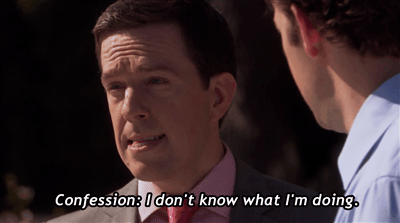After endless hours of filling out applications, perfecting your resume and sitting through interviews, getting a concrete job offer is a huge win. It’d be easy to accept the first offer you get and run with it, too. However, it’s extremely important to take a step back and make sure you have all the information you need before accepting a binding job offer.
Here are some questions you should ask your interviewer and fully understand before you sign a contract.
What Benefits Do You Offer?
This question should cover any health benefits such as health insurance, dental and vision insurance as well as life insurance. You can also ask about gym membership discounts, graduate school tuition reimbursements and any other benefits the company may offer to their employees.
How Do Vacation and Sick Days Work?
It is important to understand how many vacation days and sick days you’ll have, how they’ll accumulate and if they carry over from year to year. This may be an awkward question to ask because you don’t want your interviewer to think you’ll be needing a lot of time off, but it is an important piece of information to have. Things do come up and you will probably need some flexibility with days off at some point.
Is Salary Negotiable?
This will most likely be another uncomfortable question, but again, it’s an important one. You need to make sure the salary will work for your budget, and it’s much easier to negotiate this before you are hired rather than a few months later.*
It’s also smart to consider how the salary adds up compared to what other people in your field are getting paid. Do some research if you need to. Sites like Glass Door let you see anonymous salaries of people in the company you want to work for as well as similar companies. You’ll also find employee reviews and other job listings.
What Is the 401k Program?
You might think it’s too early to start thinking about retirement, but the truth is that it’s never too early. It’s a good idea to get a feel for the retirement programs the company offers. Consider if the company matches contributions, if you can take the account with you, etc.
If you need a little extra refresher about what exactly a 401k is, read all about the basics on the Daily Finance blog.
Will Relocation Be Required?
If you’re a young and adventurous person, you might love the idea of relocation. The company wants you to move to California? Great! On the other hand, you might be happy where you are. Either way, finding out about relocation is extremely important.
Find out if the company will help with moving or traveling expenses and if relocation will be a possibility in the future. If relocation is a must, ask if they will connect you with a realtor to make the relocation as easy as possible. Real estate professionals have in-depth knowledge of the area and can work with you to have a seamless transition, from finding the right space for you to handling transportation. Some, like 33 Realty, even offer virtual services to avoid costly travel to view new homes or apartments.
When Would I Start and What Kind of Schedule Will I Have?
This is a logistical question that will help you fill out your new calendar. Knowing when you would start will help you know the right time to give your old job two week’s notice. You’ll also want to be aware of any scheduling conflicts right away so you can make necessary adjustments or let your employer know of any issues up front.
Is This Job Right for Me?
Obviously, your interviewer can’t answer this for you. This is a question to ask yourself. Will you be able to fit in with the environment and culture of the company? Are they completely corporate cut-throat or completely invested in their employees? Either way, a company that makes workplace happiness a priority is a win-win.
Make sure you’ll be challenged and excited about the job you’ll be doing. You’ll also want to ask yourself if the job will help you advance your career. Everything about the job could line up perfectly, but if it’s not the right fit for you, then you should reconsider.
You want your job to fulfill your professional needs as well as being a great place to work. Asking these questions will ensure the job you accept is the perfect job for you.

